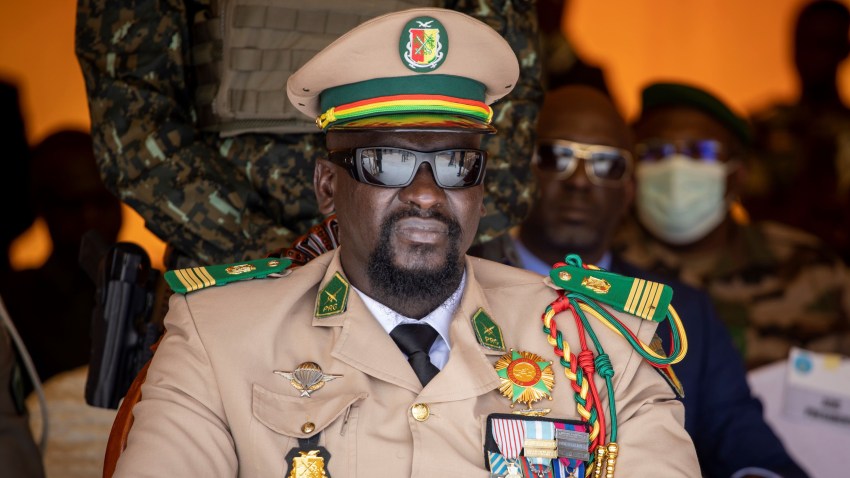On Feb. 28, Guinea’s interim president, Gen. Mamady Doumbouya, appointed Ahmadou Oury Bah as the country’s prime minister. An economist and seasoned politician, Bah is the third person to hold the position since the coup led by Doumbouya that ousted former President Alpha Conde in September 2021. His appointment came nine days after the surprise dissolution of the previous government and the announcement of a series of measures targeting the outgoing ministers, including a travel ban and freezing of their assets.
Prior to his appointment, Bah served as the leader of the Union of Democrats for the Renaissance of Guinea, or UDRG, a coalition encompassing various political parties. His selection represents a strategic move by Doumbouya, who is counting on Bah’s proven ability to unify divergent political factions. He already put that to good use in the composition of the new government. Following prolonged negotiations, Bah assembled a Cabinet of 25 ministers, including 7 women, largely consisting of inexperienced youthful politicians. Though predominantly a civilian government, retired generals Aboubakar Sidiki Kamara and Bachir Diallo assumed the role of defense minister and minister of national security and civil protection, respectively. Notably, however, the department responsible for overseeing elections and territorial administration will be overseen by Mori Conde, a human rights activist.
The newly appointed government also includes several figures who vocally opposed Conde’s controversial third-term bid in 2020. These include Ousmane Gawal Diallo, closely aligned with opposition figure Cellou Dalein Diallo, who takes charge of urban planning and housing, and Alpha Souma, a leading figure in the National Front for the Defense of the Constitution, who leads the Ministry of Culture and Tourism. This casting represents a significant step toward inclusivity in the new government, the lack of which had caused dissatisfaction among Guinea’s political class over the past two years.

